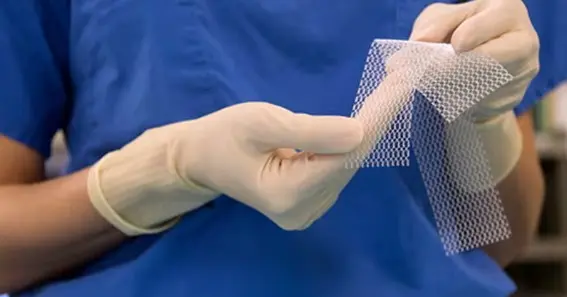As you navigate the landscape of transvaginal mesh litigation, the year 2024 promises significant developments in lawsuit settlements.
If you or a loved one has been affected by complications from these implants, you’re likely seeking clarity and justice amidst the legal complexities. The importance of understanding these developments cannot be overstated, as they directly impact your rights and potential compensation.
In this blog, we’ll explore the anticipated changes and their implications for your journey toward resolution.
Recap of Previous Settlements and Verdicts
Previously, the transvaginal mesh litigation saga has seen a mix of settlements and verdicts, shaping the landscape for future cases. Several major manufacturers have negotiated to settle thousands of lawsuits, compensating victims for the harm they’ve endured.
These settlements have addressed various allegations, including claims of mesh erosion, organ perforation, chronic pain, and other complications. Some cases have proceeded to trial, where juries have awarded significant compensatory and punitive damages to plaintiffs. They’ve held manufacturers accountable for their products’ alleged defects and inadequate warnings.
According to ConsumerNotice, in November 2023, attorneys continued to pursue trials or settlements for cases using transvaginal mesh, even after MDLs were closed. Several lawsuits against the Johnson & Johnson company Ethicon were dropped in New Jersey in July 2023. Some of these claims reached private agreements, while others are still pending.
A jury found in J&J’s favor in a case that Rebecca Dandy had brought in May 2023. Due to false marketing promises, Ethicon and Kentucky reached a $9.9 million settlement in February 2023. In November 2022, Judge Joseph Goodwin closed the final MDL in session and returned outstanding matters to state courts. Ninety-five percent of transvaginal mesh claims were settled by July 2022.
Looking ahead to 2024, the outcomes of ongoing negotiations and pending trials are anticipated to have far-reaching implications for transvaginal mesh litigation.
Also Read N: Connecting with Your Real Estate Audience: Tips for Effective Communication
Key Factors Influencing 2024 Developments
First and foremost is the continued scrutiny of the safety and efficacy of mesh implants. Manufacturers face heightened pressure as more evidence emerges regarding the risks and complications associated with these devices. They need to address the concerns of affected individuals and their legal representatives.
The outcomes of bellwether trials and appellate court decisions will serve as crucial benchmarks for future cases. These trials, chosen to represent the broader litigation, can set precedents for liability and damages, potentially impacting the direction of settlement negotiations. Also, the evolving legal landscape, including any changes in legislation or judicial interpretations, may affect the strategies and outcomes of transvaginal mesh litigation.
Also Read P: Simplify Your Life with Laundry Pick-Up and Delivery: Experience the Convenience
Anticipated Settlements and Verdicts
Many affected individuals hope for fair and adequate compensation for the pain, suffering, and medical expenses incurred due to complications from mesh implants. On the other hand, manufacturers seek to mitigate their financial liabilities while addressing the concerns of those harmed by their products.
The outcomes of ongoing negotiations and upcoming trials will likely vary. Some cases potentially result in substantial settlements, while others may proceed to trial for a verdict. The legal teams representing both sides will continue to engage in discussions. They will weigh the strengths and weaknesses of each case and consider the potential impact of recent developments in similar litigations.
It’s noteworthy that according to Drugwatch, as of February ’24, transvaginal mesh lawsuits are resulting in settlements between $40,000 and $450,000. After filing an appeal, some plaintiffs who received millions of dollars in jury judgments had their awards lowered or reversed.
The severity of the damage, the plaintiff’s age, and the length of treatment all affect settlement amounts. Attorneys with expertise in transvaginal mesh litigation help clients get the highest possible payment.
As the year progresses, stakeholders will closely monitor the outcomes of such settlements and verdicts. It could set precedents and shape the future landscape of transvaginal mesh litigation. The hope is that these resolutions provide a measure of justice and closure for affected individuals. It also fosters accountability within the medical device industry.
Legal Strategies and Challenges
In navigating the complexities of transvaginal mesh litigation, legal strategies and challenges play a crucial role in determining the outcomes of lawsuits.
Attorneys representing plaintiffs and defendants employ various tactics to effectively present their cases. It includes thorough investigation, gathering of evidence, and expert testimony to support their respective positions. Legal teams must navigate the intricacies of product liability law, medical regulations, and procedural requirements inherent in these cases.
According to TorHoerman Law, legal strategies in vaginal mesh lawsuits often revolve around proving the manufacturer’s liability for the injuries sustained by the plaintiff. This involves demonstrating that the mesh product was defectively designed, manufactured, or marketed, leading to the plaintiff’s harm. Attorneys may also focus on establishing causation, linking the use of the mesh implant to the specific injuries suffered by their clients.
They may pursue compensation for various damages, including medical expenses, lost wages, pain and suffering, and punitive damages where applicable.
Navigating the legal landscape of the vaginal mesh lawsuit presents numerous challenges. Defendants, typically large medical device companies, often have substantial resources and legal teams dedicated to defending against these claims. They may employ aggressive tactics, such as challenging the plaintiff’s evidence, disputing causation, or seeking to have cases dismissed on procedural grounds.
Impact on Claimants and the Healthcare Industry
For claimants, the resolution of these lawsuits can have profound effects on their lives. Many individuals who have suffered from complications due to mesh implants hope for fair compensation. It is for covering medical expenses, lost wages, and pain and suffering. A favorable settlement or verdict can provide a sense of justice and closure. It allows them to move forward with their lives and focus on recovery.
Conversely, the healthcare industry is closely monitoring these developments, as they may impact medical device regulation, manufacturing practices, and patient care standards. Heightened scrutiny on the safety and efficacy of mesh implants could lead to stricter regulations and increased oversight. It can affect the availability and use of these devices in clinical practice.
Expert Commentary and Insights
Legal experts specializing in product liability and medical malpractice can provide valuable perspectives. Especially on the evolving legal strategies, precedents, and challenges faced by both plaintiffs and defendants. Their analysis of court rulings, settlement trends, and regulatory developments can offer invaluable guidance to individuals navigating the legal process.
Medical professionals, including gynecologists and urologists, can offer insights into the medical aspects of transvaginal mesh complications. Their expertise in diagnosing and treating patients affected by mesh implants can shed light on the severity of the injuries. It can also emphasize the long-term implications for patient care.
Patients can also receive advice on non-transvaginal mesh therapy alternatives from these medical professionals, states Medical News Today. Pessaries, pelvic floor treatment, and other non-surgical methods are among them. Pessaries, which are silicone implants that are put into the vagina, offer support. These can be appropriate for people looking for short- or long-term fixes.
Exercises to strengthen the pelvic muscles are part of pelvic floor treatment, which is frequently overseen by a physiotherapist. Methods such as electrical stimulation and biofeedback might potentially be beneficial. Additional treatments for treating SUI include bladder training, medication, and lifestyle modifications. It also includes surgical procedures such as biological graft repair, native tissue repair, and bulking agents injected into the urethra.
In conclusion, the anticipated developments in transvaginal mesh lawsuit settlements for 2024 hold profound significance for affected individuals, the healthcare industry, and legal practitioners. As negotiations progress and trials unfold, the outcomes will shape the landscape of patient care, medical device regulation, and legal accountability.










